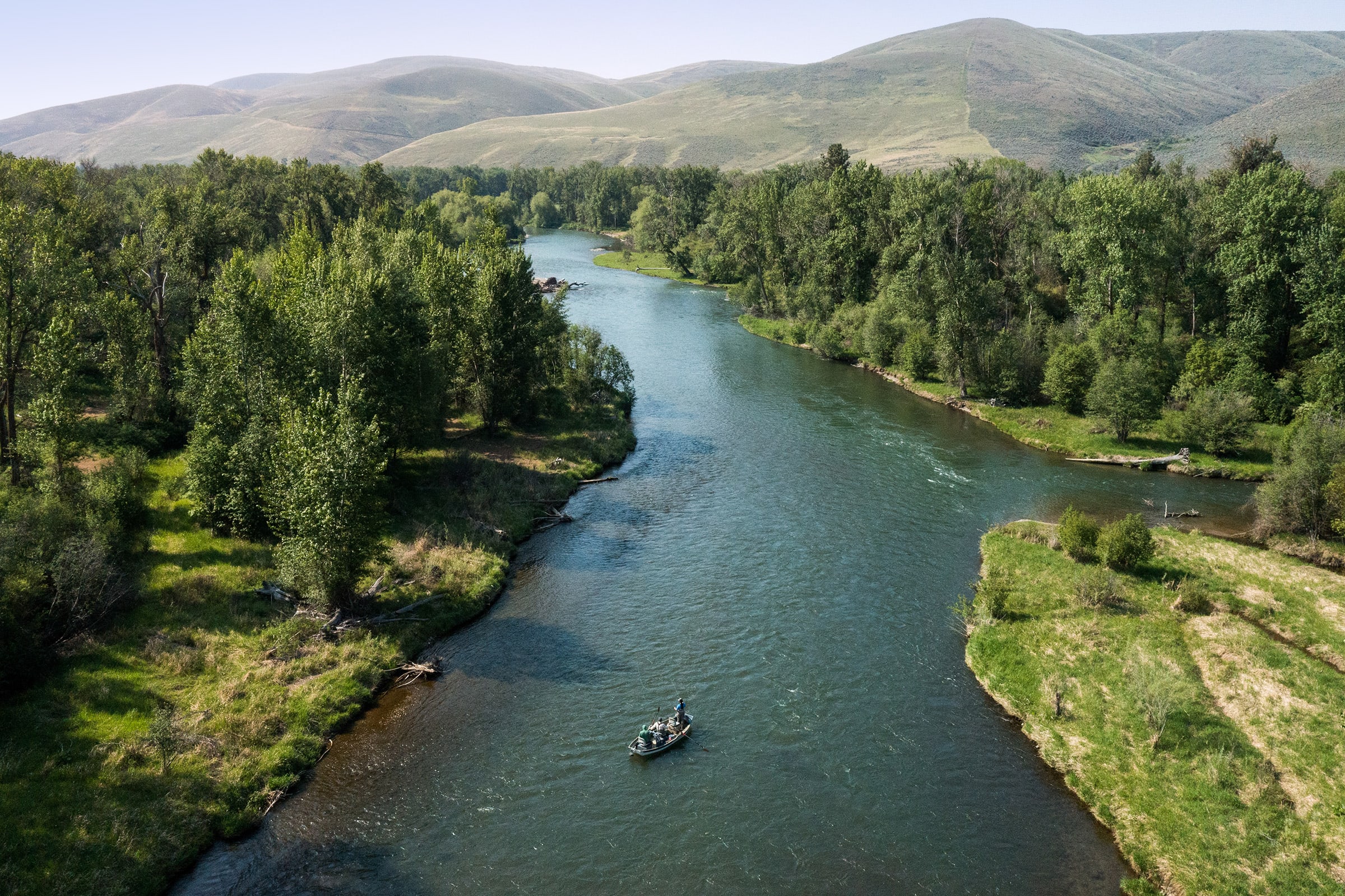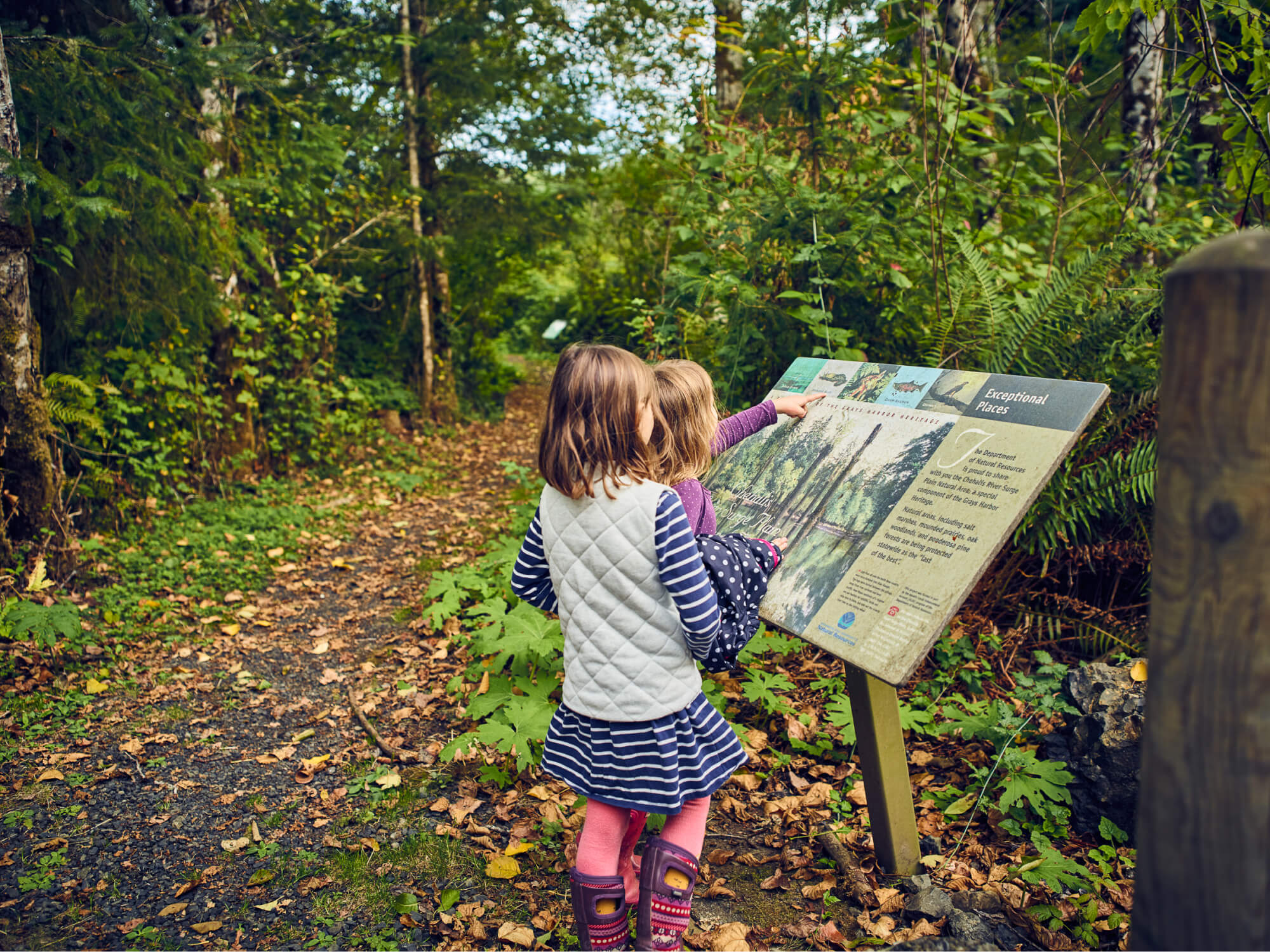Western Rivers Conservancy and Kittitas County join forces to conserve and restore crucial salmon habitat in Yakima River

KITTITAS COUNTY, Washington—Columbia Basin salmon and steelhead will soon have new spawning and rearing habitat in the Yakima River. Last week, Western Rivers Conservancy and Kittitas County permanently conserved Four Seasons Ranch, the last remaining private inholding within the Ringer Restoration Reach, a large-scale restoration site encompassing 650 acres of floodplain and nearly four miles of the Yakima River.
The Yakima was once a powerhouse producer of salmon and steelhead, but a century of human impact has degraded the basin’s wild fish runs to a fraction of their former size. A consortium of federal, state, tribal and local partners are working to restore the river to its natural floodplain, which will greatly increase the spawning and rearing habitat available to anadromous fish.
Kittitas County has been working with landowners within the Ringer Reach for nearly a decade to purchase parcels from willing sellers with the goal of restoring the entire reach to its natural floodplain, preserving open-space, and reducing reliance on flood control levees. Four Seasons Ranch was the sole remaining private property within the reach and one of the most important for salmon recovery. With the permanent conservation of Four Seasons Ranch, this crucial restoration effort can proceed.
Western Rivers Conservancy purchased Four Seasons Ranch and immediately conveyed it to Kittitas County, laying the groundwork for the county to restore the floodplain, diminish flood risk and improve spawning and rearing habitat for salmon and steelhead.
When the restoration effort is complete, this reach of the Yakima River floodplain will provide essential habitat for ESA-listed steelhead, spring Chinook, coho and cutthroat trout. Additionally, this stretch of river is used by migratory sockeye and is designated as critical foraging, migratory and overwintering habitat for ESA-listed bull trout.
Now that WRC has transferred Four Seasons Ranch to Kittitas County, restoration on the Ringer Reach will move forward in earnest. Berms and levees will be removed or allowed to continue their decay, side channels will be restored, cottonwood trees will be returned to the landscape, and this stretch of the Yakima will once again be free to meander and shift across its natural floodplain.
“This restoration effort will breathe new life into this important stretch of the Yakima,” said Jessica Inwood, Washington state program manager for Western Rivers Conservancy. “It’s an extraordinary opportunity to be part of reviving these historic channels and reconnecting the river to its natural floodplain.”
For the Yakima’s salmon and steelhead, this is a major step in the right direction.
Not only is this project a huge win for fish, it’s also a win for recreation. The property will ultimately be available for hiking, birding and other forms of recreation and will provide access to adjacent Bureau of Land Management property, which is public but previously lacked direct access.
“This acquisition recognizes that continuing to defend these levees against a dynamic river comes at ecological and economic costs,” said Arden Thomas, Kittitas County Water Resource Manager. “Instead of going down a path of expanded floodplain development and ongoing attempts to control the Yakima River, we see the river as a resource, and have secured lands for broader public uses and opportunities to improve habitat while decreasing flood risk.”
WRC is midstream on another project on the Yakima River. In December 2021, WRC purchased Yakima Canyon Ranch, which spans 647 acres along both sides of the Yakima River Canyon. The ranch lies at the epicenter of some of Washington’s best fly fishing water, with outstanding river access, good camping and excellent fish and wildlife habitat. WRC is holding the property until it is able to convey it to the BLM for protection with the Yakima Canyon Area of Critical Environmental Concern, which will permanently protect that stretch of river for the sake of fish, wildlife and public access.
This project was made possible through funding and support from the Washington State Salmon Recovery Funding Board, the Yakima Basin Integrated Plan, Giles W. and Elise G. Mead Foundation, Hugh and Jane Ferguson Foundation, Betlach Family Foundation and generous individual donors.
